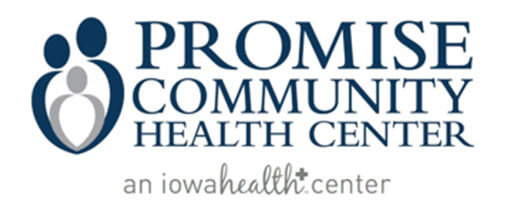28 Apr
by Derrick Vander Waal
SIOUX CENTER, IOWA – Rebecca Mangold knew she wanted to go into a career where she could help people.
SIOUX CENTER, IOWA – Rebecca Mangold knew she wanted to go into a career where she could help people.
During college, she thought that might be as a missionary. But plans changed. She discovered that she could help many underserved people as a mental health therapist right here in northwest Iowa.
Mangold, a provisionally licensed mental health counselor for Creative Living Center in Rock Valley, now is seeing patients one day per week at Promise Community Health Center in Sioux Center. Promise has a contract with Creative Living Center for Mangold to provide the service 8 a.m.-5 p.m. Wednesdays.
“Through conversations, they realized that this could be a good partnership since I’m starting out as a therapist, and I also speak Spanish,” Mangold said, referring to Promise’s large Spanish-speaking population.
Mangold, a 2008 graduate of Albert Lea High School in Minnesota, earned degrees in psychology and Spanish at Northwestern College in Orange City in 2012. After taking a year off from school after college and serving for a few months as part of the Lutheran Volunteer Corps at a law agency in Oakland, CA, she enrolled at the University of South Dakota and earned her master’s degree in clinical mental health counseling in December 2015.
She started working at Creative Living Center in January and began seeing patients as a therapist for Promise’s behavioral health program on April 13.
“What interested me the most is being able to have contact with the Hispanic community and to be able to provide therapy in Spanish,” Mangold said. “For so long, I’ve been saying that was one of my goals, so it’s really exciting to be here because Promise serves both an English- and Spanish-speaking population.”
Here are some of her reflections about behavioral health and her role at Promise:
Q: What is behavioral health care in your own words?
A: To me, I think of behavioral health or mental health, those two terms, as taking care of yourself in another way because we all have minds and we all have emotions and feelings. Sometimes those are really difficult, too. There are a lot of life situations that happen that are not easy to experience or go through. It’s hard to know how to cope with it. Sometimes it’s helpful to talk to an outsider. You can spend a lot of time with family and friends and keep saying similar things to them, but that fresh pair of ears can be helpful in and of itself. They’re a little more removed from the situation.
Q: What are the most rewarding aspects of this profession?
A: Being allowed to enter into somebody’s most sacred and intimate part of their life. You know, that’s a lot of trust to share with someone things that they maybe haven’t shared with someone else. I feel really honored and humbled by that – when people are able to open up and be vulnerable with me.
Q: Why are behavioral health services so important, and why is it good to integrate them with primary care?
A: To me, what is really amazing about integrating with primary care is that I think it takes away some of that stigma. I feel like as a society we are OK with going to the doctor. “Hey, I’m sick and don’t feel well; I’m going to go to the doctor.” When someone is struggling with mental health, there’s more of a stigma around that. People aren’t as open, and it’s a little scarier. So I think having it integrated kind of bridges that gap a little bit and makes a smoother transition. I think it could help people see that, “Oh, this is helpful. It doesn’t mean I’m weak. This is just another part of my care.”
Q: What do you hope you can bring to Promise in this role?
A: What I’m excited about being at Promise is being able to provide therapy in Spanish as well. Interpreters are awesome. They do great work, but it changes the dynamic of therapy. I’m really glad I can bring a bridge for that language gap. Hopefully, that will make that therapy space as comfortable as it can be without having too many outside people.
Q: What are your impressions of Promise as an organization?
A: I’m just blown away. The impression I get is Promise is trying to think about all avenues of health and trying to get as many people on board to provide those services. When I personally hear health center, I usually just think medical. So it’s really amazing to me that, no, they have medical; they have dental; they have vision; they have behavioral health. That comprehensive model is just amazing to me.
Promise Community Health Center, headquartered in Sioux Center, is the only Federally Qualified Health Center in the far northwest corner of Iowa. Promise provides medical, prenatal, dental, vision and behavioral health services. To learn more, visit www.promisechc.org.
MORE ABOUT REBECCA:
Rebecca Mangold and her husband, Dan, live in Orange City. She enjoys music, particularly playing violin, and outdoors activities, including going for walks and fishing.
ALSO SERVING AT PROMISE:
Promise Community Health Center also has a contract with Seasons Center for Behavioral Health for providing behavioral health services. Maggie Greving, a therapist for Seasons, has been seeing patients 8 a.m.-noon Mondays and Thursdays at Promise. Pedro Ruiz serves as Promise’s full-time behavioral health care coordinator and interpreter.

